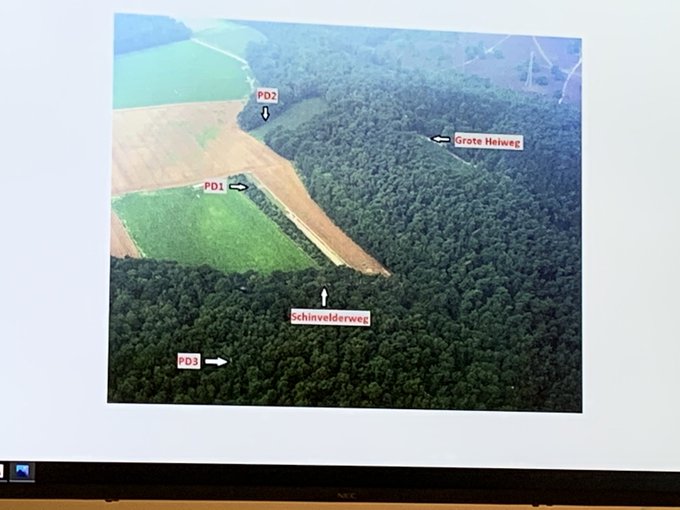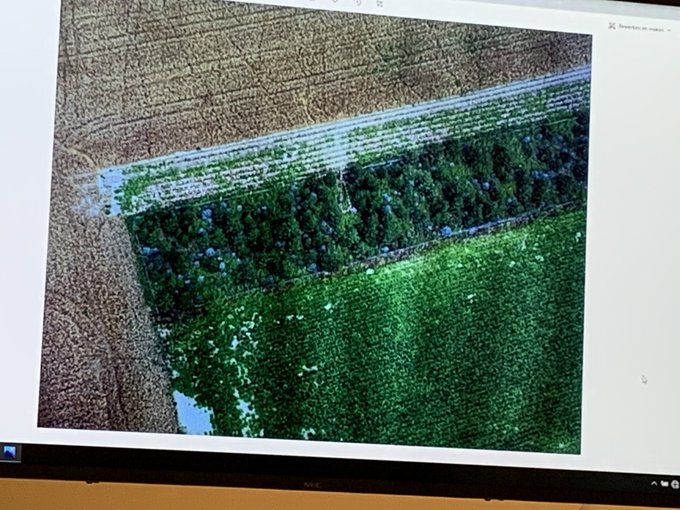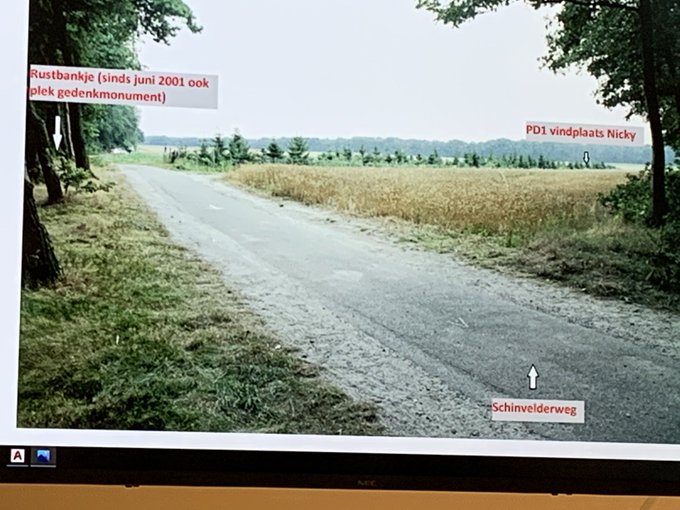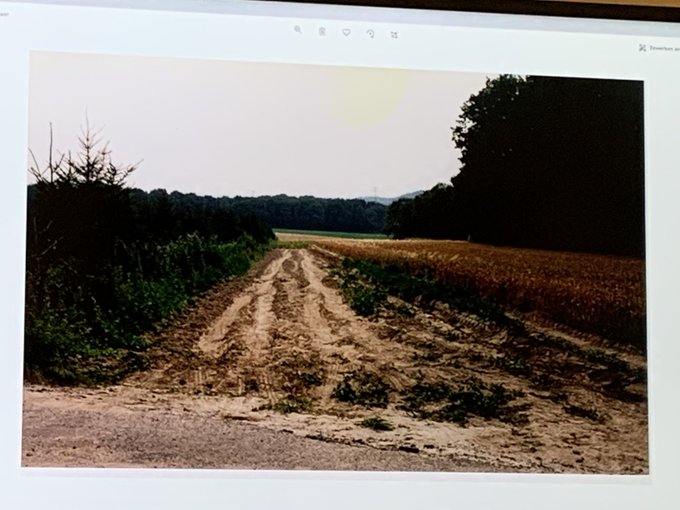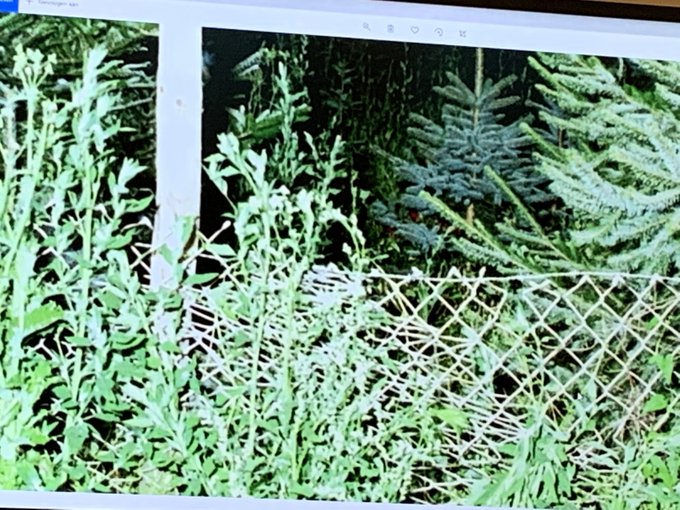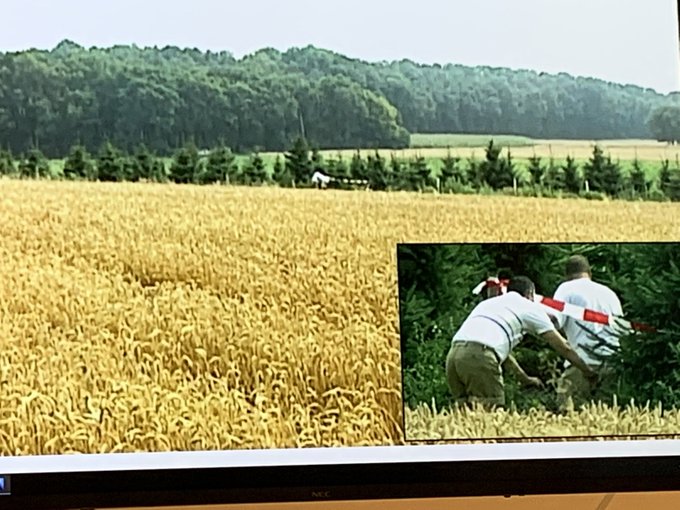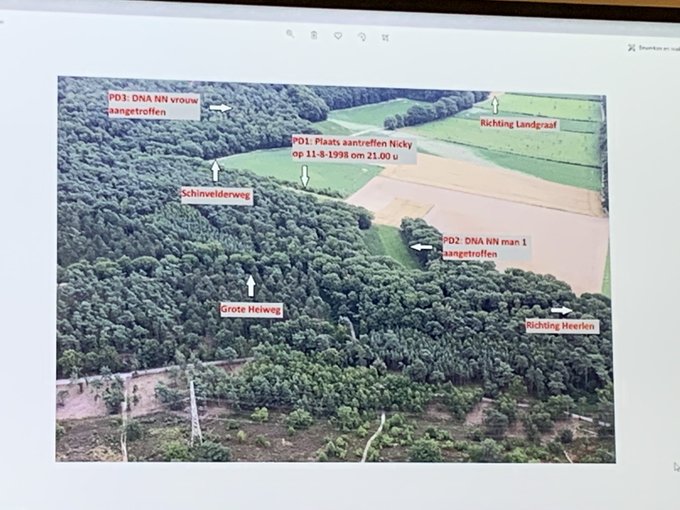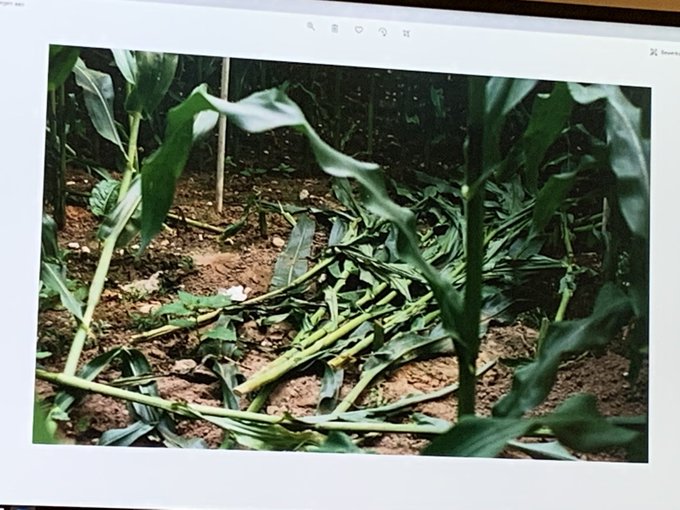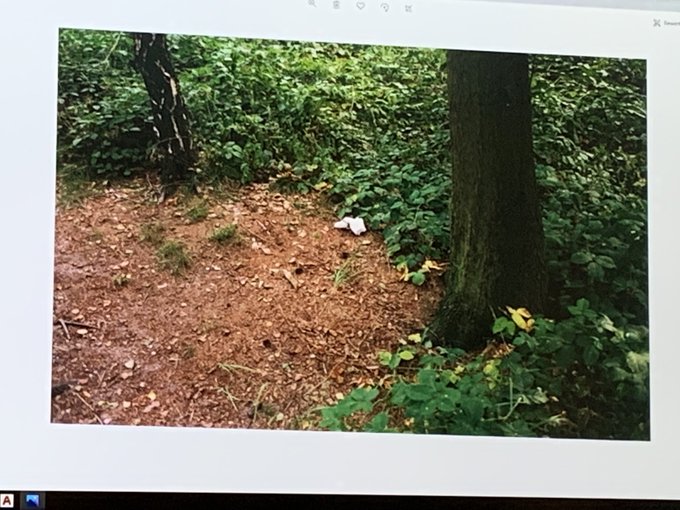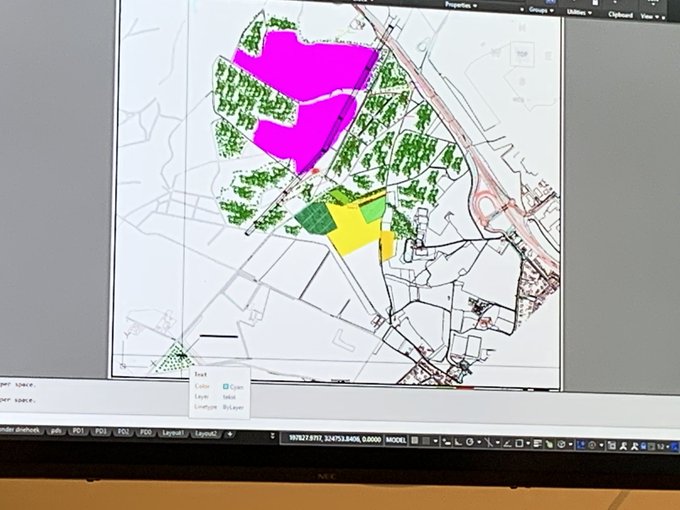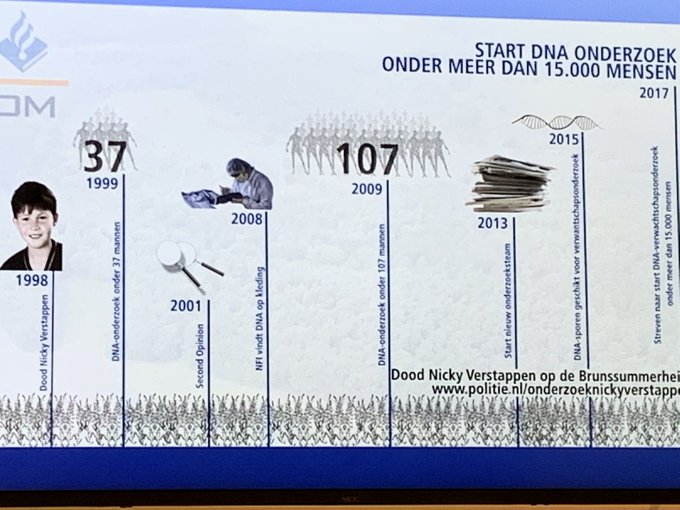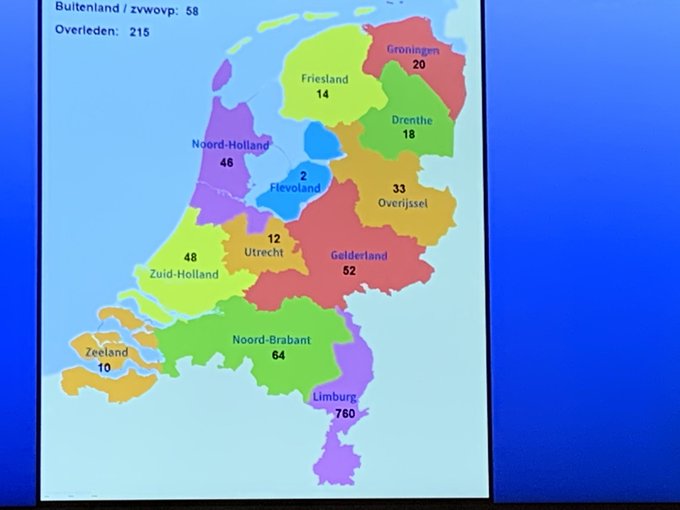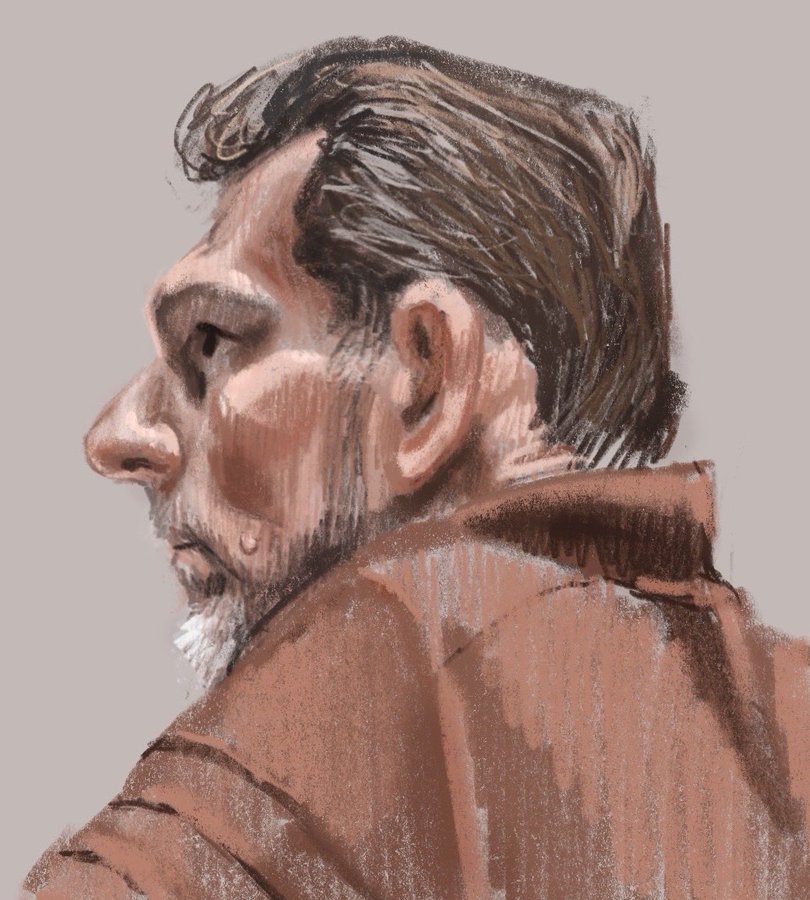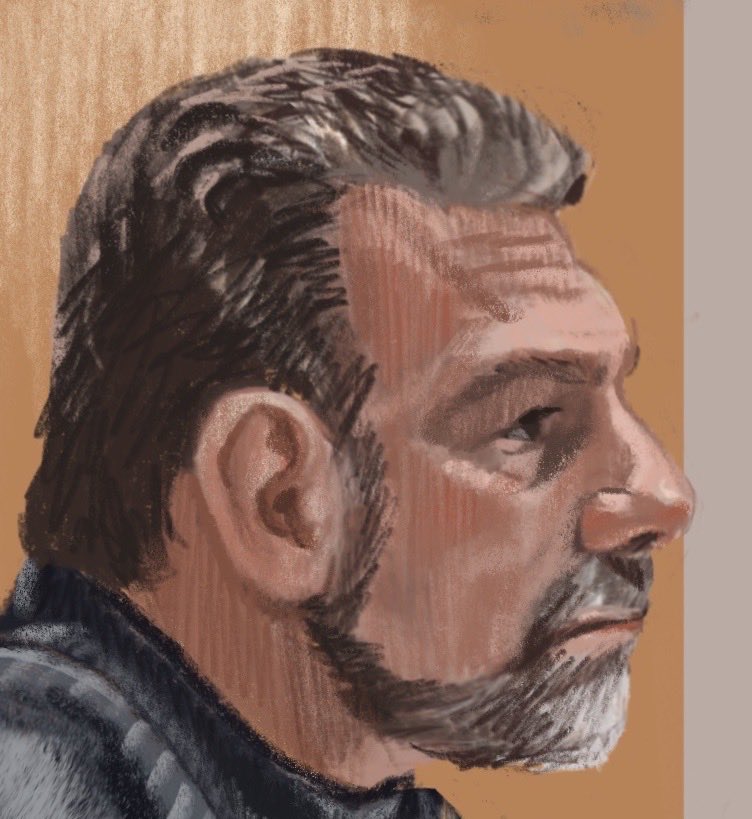Thursday, October 8, fifth day in court, continued.
Timeline of crime reporter Saskia Belleman
@SaskiaBelleman
Public Prosecutor Emmen now goes back in time with a sketch of the situation in 1998: the summer camp on the Brunssummerheide, the tent of the Nightriders as Nicky's group was called. That tent was on the edge of the terrain.
The children had gone swimming the day before. It was warm. When the next morning at 8 o'clock the reveil was sounded, Nicky turned out to be missing. His companions had already noticed that, but the children were not allowed to leave their tent before 8 o'clock.
The camp leadership was not immediately very alarmed, according to prosecutor Emmen. Apparently Nicky had quarrelled with his friends and had threatened to run away. It was assumed that he would come back.
When it became clear that Nicky was not coming back soon, a search was started. More than a day after his disappearance he was found in a spruce forest, at 1400 meters from the summer camp. He had died.
A man-made clearing was found in a corn field. Corn stalks had been cut down, and a tissue with sperm from an unknown man and a crown cap were lying there.
A little further on the police found a tissue with remains of human stools. The spot in the corn field became crime scene 2. The place with the second tissue was crime scene 3.
The tissue on PD3 contained a woman's stool. The sperm of the unknown man on PD2 remained of unknown origin. The dna did not match with dna in the national database.
In 2008 the Netherlands Forensic Institute succeeded in securing 2 complete dna profiles on Nicky's pants. Of unknown man 3 dna was found on 1 spot. From unknown man 2 at several places.
A new dna examination was carried out. In vain. In 2012 the case was re-examined. In 2013 a whole new investigation team was put on the case to guarantee that the case was looked at with a fresh look.
That new team ultimately brought about the breakthrough in the case, says Prosecutor Emmen. They looked at all the investigations carried out so far and digitalised thousands of documents in search of loose ends.
In 2017, the adhesive films used to secure fibres and hairs in 1998 were also examined. This yielded dna from NN4 and NN5.
The dna kinship research was "the ultimate remedy", says OvJ Emmen: the ultimate last attempt to solve the case. 15,000 people took part.
The profiles of NN4 and NN5 were "incomplete profiles". Justice was faced with the question of which of all the identified profiles should be included in the kinship investigation. Most of the dna was from NN2.
In previous years, many dna donors who had had "innocent contact" with #Nicky had already been excluded. NN2's dna seemed to indicate "prolonged and intensive" contact with the child's clothing. However, according to experts, this could also be an innocent contact.
Because of the amount of dna, special attention was paid to this NN2. Less dna from NN3 was found, but there were traces on Nicky's clothing. That profile was also included in the investigation.
For NN4 and NN5 only incomplete profiles were available, and also very few. The profile of NN1, the tissue with sperm in the corn field, was included in the study.
The investigation team made a list of names of men who regularly came to or near the Brunssummerheide, or had a moral history, to compare their dna with the profiles found. They were not obliged to cooperate.
Map of the origin of men who were identified as 'persons of interest'. They were invited to participate in autosomal dna investigations.
They were 'no suspects', but so-called 'persons of interest', says ECJ Emmen. Jos B. was also on that list of 1350 names. Because he regularly came on the moor in 1998 and had a vice history.
From that list men were found to have died, or to have been abroad. In the end the dna of 1000 men was investigated. Jos B. was one of those men abroad.
For the kinship investigation 21.000 people were invited.
It turned out to be quite a challenge to determine who should be approached for the large-scale kinship research. It turned out that many men had moved from the area, or had died in the meantime.
Prosecutor Dave Mattheijs takes over. And is going to talk about the forensic facts.
The Public Prosecutor's Office will soon be giving many detailed explanations to show that Jos B. is the perpetrator of the combined crime of vice and life.
For the Public Prosecution Service it has also been established that this combined crime of vice and life was committed by one offender: Jos B. The very nature and extent of the dna evidence does not allow any other conclusion, according to Public Prosecutor Mattheijs.
Jos B. leans with his forearms on the table in front of him and looks at the prosecutor. His lawyer Roethof has the text of the indictment on his lap and underlines parts with a pen.
As far as the Public Prosecution Service is concerned, the overall picture of the investigation into all dna shows that Jos B.'s dna could only have come into contact with Nicky's pants through intensive contact.
Nicky was lying in a fenced plot known as the 'Christmas tree forest'. He was lying in a "typical twisted posture, on his back," says the prosecutor. People who found him said it looked like he had been put there.
The Public Prosecutor has long considered showing the images, but out of piety with the family decided not to do so.
The child was barefoot. His shoes were still in the tent. He only wore pants and pyjama trousers. These were both inside-out and backwards.
An entomological examination - for insects and eggs - was carried out to determine the time of death.
The investigation was first done by Naturalis and then by the Netherlands Forensic Institute. The time of death was probably Monday evening. It may also have been earlier, but then his body must have been kept fly-free elsewhere, says the Public Prosecutor.
But according to the Public Prosecutor's Office, the entomological examination has yielded little definite information about the time of death. This had to do with the assumptions made by the investigators, the Public Prosecutor says.
Jos B. listens attentively to the indictment of the Public Prosecution Service. Drawing by
@PetraUrban
The prosecutor goes on about maggots, flies, eggs. Terrible to hear for the next of kin.
The child's body temperature was not taken. According to the Public Prosecutor's Office, "this is not a missed opportunity. The death marks on Nicky are well described and match the posture in which he was found".
This means that Nicky either died on the spot in the spruce bush, or did not move after he was put there, according to prosecutor Mattheijs.
A green spot was also found on Nicky's belly. This is called marbling and is a sign of decomposition that usually occurs between 36 and 72 hours after death at a temperature of 21 degrees Celsius.
What do all the findings say about Nicky's time of death? That may have been early in the morning on Tuesday 11 August, or a little later. It could also have been Monday 10 August, the prosecutor says.
When Nicky was found around 9 o'clock on Tuesday evening, he had already been dead for at least 12 hours and may even have died on Monday, the Public Prosecutor concludes.
The Public Prosecutor is now investigating the overgrowth in the area and the traces found near Nicky.
The traces on Nicky's soles and on his clothing yielded botanical traces - moss, flower stems - that corresponded to the place where he was found.
There are no indications of another crime scene, according to Prosecutor Mattheijs.
Pollen research has also been carried out. There was a corn field and a potato field near the spruce forest. There was a little pollen on the underside of the pajama trousers. This also corresponded to traces at the crime scene.
The traces indicate that he did not walk through the corn field. It cannot be ruled out that he walked through the potato field.
Many forget-me-nots were found on both sides of the pajama trousers.
Prosecutor Mattheijs concludes that the flowers ended up on Nicky's trousers on the spot and that the child was lying on his belly as well as on his back.
No clinical cause of death has been established in Nicky's autopsy. But there are ways to take someone's life without leaving any traces, Prosecutor Mattheijs says.
"There are even examples of people who have been convicted of a life offence without a body ever being found," according to DA Mattheijs.
According to the prosecutor, the evidence for a life offence can be provided in this case.
Forensic doctors carry out investigations on the spot. Pathologists do not attend the PD. At least, not in the Netherlands. This often happens in other countries, says OvJ Mattheijs.
The clinical pathologist-anatomist of the NFI concluded that no cause of death could be established. But a forensic pathologist looks further and investigates the circumstances under which a body is found, says the Public Prosecutor.
The answer to the question of whether there is a life offence is not entirely dependent on determining the cause of death, says the Public Prosecutor Mattheijs. The circumstances of the case are also important.
Although no injuries have been found to explain the death, no illness has been found in Nicky to explain his death, the prosecutor says.
If there is a non-natural death, it would have to be suicide, illness, an accident or a crime. The prosecution is convinced that it is a crime.
There is no evidence of genetic predisposition or cardiac arrhythmia to explain the cause of Nicky's death, says the prosecutor.
Prosecutor Mattheijs first discusses a possible natural death. Very rare in an 11-year-old child. Usually it is known in advance that there is a disease, or it turns out after the autopsy.
A cardiac arrhythmia cannot be ruled out, but is extremely rare in an 11-year-old child, says the Public Prosecutor. "But do the other circumstances in which Nicky was found fit in with such a scenario? No!"
His parents were examined to determine whether there could be a genetic predisposition. It turned out that there was none. "Nicky was hidden in a hard to reach place, in a fenced plot. In a position that gives the impression that he had been laid down. Hidden."
The way he wore his clothes, backwards and inside-out, the position he was in, the traces of a man's dna on his body, all indicate that he did not suddenly die of cardiac arrhythmia, says the prosecutor.
"
All that remains is that we are dealing with a non-natural death," the prosecutor says. "In that case there are 4 possibilities: euthanasia, suicide, an accident, or a crime. For the first 3 causes of death there are no indications," the prosecutor notes.
Hypothermia or dehydration were not an issue. It was warm in that August month and Nicky was missing too short a time for dehydration. In addition, other characteristics indicating this were absent.
There were no signs of violence. But obstructing breathing does not have to leave any traces. According to the pathologist, suffocation due to choking, suffocation due to violence on the neck and suffocation due to compression of the chest can be considered.
Nicky's eyes could no longer be examined for point bleeding, says the public prosecutor.
So there is no objectively identifiable medical cause of death. However, according to the prosecutor Mattheijs, the circumstances provide sufficient grounds for a violent death. The only other possibility is that rare cardiac arrhythmia, for which he had no predisposition.
So much for forensic evidence from the Public Prosecution Service for the cause of death.
Break until quarter past 1.
BBM
